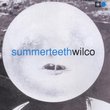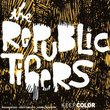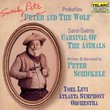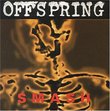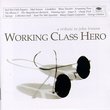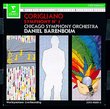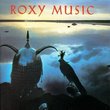| All Artists: Fumio Hayasaka, Dmitry Yablonsky, Russian Philharmonic Orchestra, Hiromi Okada Title: Humiwo Hayasaka: Piano Concerto; Ancient Dances Members Wishing: 0 Total Copies: 0 Label: Naxos Original Release Date: 1/1/2006 Re-Release Date: 9/26/2006 Genre: Classical Styles: Chamber Music, Forms & Genres, Concertos, Historical Periods, Classical (c.1770-1830) Number of Discs: 1 SwapaCD Credits: 1 UPC: 747313281923 |
Search - Fumio Hayasaka, Dmitry Yablonsky, Russian Philharmonic Orchestra :: Humiwo Hayasaka: Piano Concerto; Ancient Dances
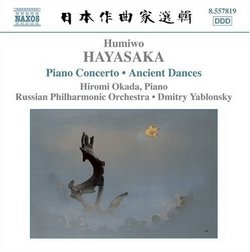 | Fumio Hayasaka, Dmitry Yablonsky, Russian Philharmonic Orchestra Humiwo Hayasaka: Piano Concerto; Ancient Dances Genre: Classical
|
Larger Image |
CD DetailsSimilarly Requested CDs
|
CD ReviewsAnother great addition to Naxos's JAPANESE CLASSICS series Erik Homenick | San Diego, California | 10/01/2006 (5 out of 5 stars) "***Reviewer's note: For this Naxos release, the composer's first name has been transliterated as "Humiwo." For my review, I will use the more common transliteration of his name, "Fumio." Fumio Hayasaka (1914 - 1955) is best remembered today for his film scores, having been Akira Kurosawa's (Rashomon, The Seven Samurai) principal composer during the early 1950's. To that end, this new installment of Naxos's JAPANESE CLASSICS series is long overdue; finally, we have a recording of Hayasaka's lesser known concert works, and what gems they are. The disc opens with Hayasaka's melodic two-movement PIANO CONCERTO of 1948. The first movement (Lento) is slow and moody (sounding a lot like Rachmaninov at times), yet never lugubrious. (Apparently, this first movement was dedicated to the composer's late brother and the Japanese victims of World War II.) Towards the end, the music builds to a brief intensity before reverting to its original calm heaviness. The second movement (Rondo) is in sharp contrast , however, with its rollicking main theme and irresistible cheeriness. There are moments of rhythmic drive a la Akira Ifukube (Hayasaka's Japanese composer friend and colleague) as well as orchestral capriciousness not unlike Jacques Ibert's famous DIVERTISSEMENT. The second movement ends festively and assuredly. Next up we encounter ANCIENT DANCES ON THE LEFT AND ON THE RIGHT (1941). This work takes its inspiration from "bugaku," the ancient court music of Japan. While this music is definitely evocative of Japan's musical antiquity, it has a modern directness about it and thus, to me, sounds like it could have been pulled from one of Hayasaka's film scores. (The Seven Samurai, maybe?) ANCIENT DANCES begins with woodwinds and percussion before segueing into richer orchestral passages. As the piece progresses, it works its way into a dance-like frenzy before abruptly calming and fading into nothing. Rounding off this album is the bolero-like OVERTURE IN D (1939). While undoubtedly superficial, this is joyous, rhythmically driven music. With its constant forward motion, brassy boldness and syncopated cadences, Hayasaka's OVERTUTRE certainly can't hide its influences from Akira Ifukube. In other words, it's a fun work and brings the recording to a merry close. Conductor Dmitry Yablonsky and his Russian Philharmonic Orchestra are in great shape on this disc. They play very solidly and with lots of bang and vehemence when needed. Additionally, pianist Hiromi Okada gives a sensitive and laudable performance on the PIANO CONCERTO. Naxos's sound engineering here is, as usual, fantastic. All together, this is a worthwhile and approachable release and probably one of the best in the on-going JAPANESE CLASSICS series. Recommended." Desperately dull music G.D. | Norway | 11/05/2009 (2 out of 5 stars) "Naxos's Japanese classics has turned a lot of soil to come up with some really obscure music, but has at the same time unearthed some real gems. Enter Humiwo Hayasaka (1914-1955), most famous for his film music (if anything), and we reach what is quite frankly a low end. Stylistically you'll find much of the same in the infinitely superior composers Akutagawa and Ifukube, so if you are considering this disc but don't know the latter composers you can stop reading now and go there instead. For those who persist, Hayasaka's piano concerto in two movements is strongly influenced by Russian music (roughly) of the time - Rachmaninov (or Tchaikovsky) in the first movement, Prokofiev in the second, but the music is nowhere close to being memorable or even particularly enjoyable. The first movement is simply cloying; this is oversweetened, sentimentally tear-dripping music without a single good idea, and Hayasaka attempts to drag it out interminably for over twenty minutes. I have heard several attempts at writing piano concertos in a Rachmaninov vein - most trying to overdo the Russian master in terms of emotion and desperation - it is rarely successful, but Hayasaka's attempt is one of the most feeble I have encountered yet. The second movement is an upbeat dance which is never even close to taking flight, remaining firmly rooted in banality with boring thematic material being flogged on with little sense of development. It is superior to the first movement primarily for being shorter. I don't think there is anything with Hiromi Okada's tackling of the soloist part - he seems to have the stamina and technical resources required, and he delivers a committed performance with a clear sense of a strong (and misdirected) belief in the music.
The Ancient Dances on the Left and on the Right is named after a traditional Japanese Dance and incorporates folk-like themes. It is more interesting than the concerto, but with a very limited compositional range, and the result is unfortunately rather dull and overlong. The Overture in D sounds like fifth-rate Khachaturian. The Russian Philharmonic Orchestra under Dmitry Yablonsky plays everything as if they believed in it (which they might), so no complaints there. The sound quality is fine as well, but the end result is for the especially interested only. Again, if you seek spirit and flair and genuine inspiration in music that bear some stylistic similarities, go for Akutagawa or Ifukube. This one can be passed over without regrets." |

 Track Listings (4) - Disc #1
Track Listings (4) - Disc #1